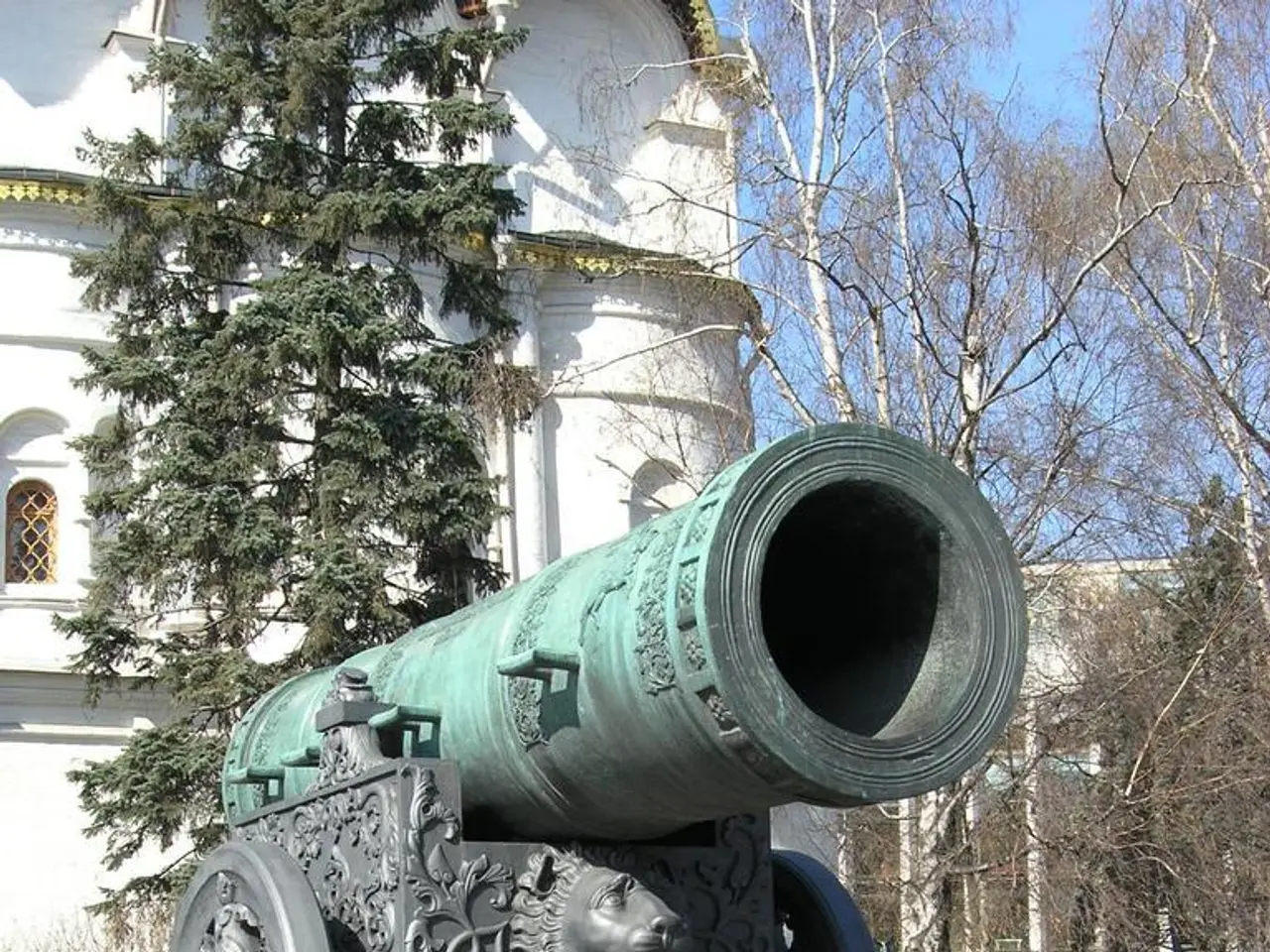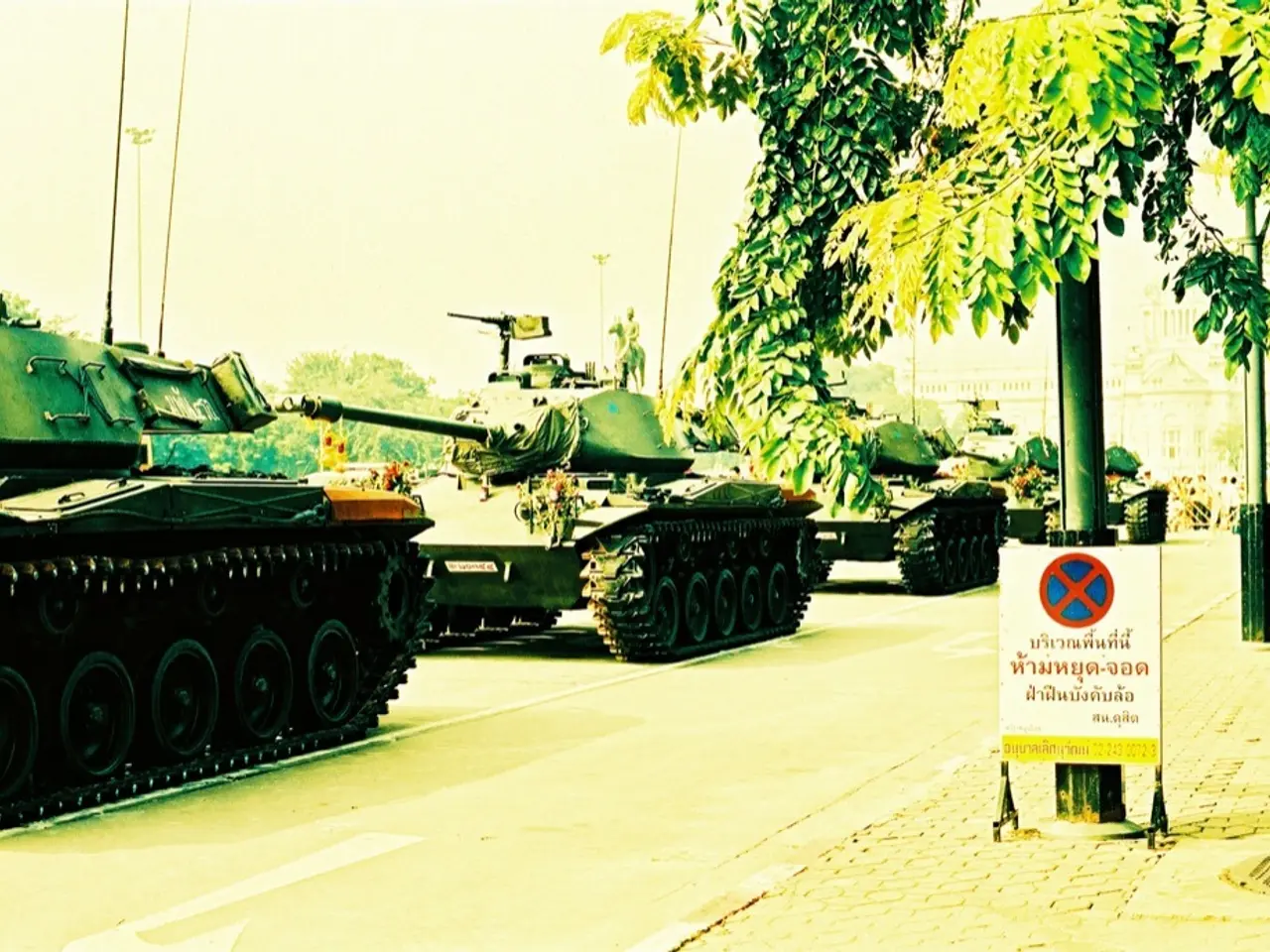Russia's Economy: A Risky Dance of Growth and Challenges
Minister of Russian Economy issues recession alert
Russia's rulers have sounded the alarm bells over potential economic troubles looming on the horizon. According to Economy Minister Maxim Reshetnikov, the numbers paint a picture of a slowdown, teetering on the brink of a recession, as he addresseds the St. Petersburg International Economic Forum (SPIEF). He slammed the Central Bank's monetary policy and predicted a downturn in investments.
Reshetnikov criticized the current interest rate level, arguing it doesn't motivate businesses to invest. The Central Bank recently nudged the key interest rate down slightly from 21 to 20 percent. In the third and fourth quarters, investments might decrease below those of the previous year, according to the minister's projections.
The Central Bank: At the End of Its Resources?
Elvira Nabiullina, the Central Bank chief, defended her monetary policy strategy, acknowledging the difficulties ahead. Despite two years of growth amid sanctions due to funds from the National Welfare Fund and the existing capital reserves of the banking system, she warned that many resources are depleted. Russia must come up with a new growth model, she said.
Russia has been in conflict with Ukraine for three years, and the recent growth has been primarily driven by massive rearmament and increased military and security spending.
The Economic Outlook: Balancing on a Knife's Edge
Russia's economic growth in 2025 is projected to be about 2.5% by the government, but the actual growth has been less impressive, at 1.5% in the first four months of the year and 1.4% confirmed for Q1 2025. These figures point to a slower expansion compared to earlier growth rates exceeding 4%. Top executives, such as Sberbank’s First Deputy CEO Alexander Vedyakhin, caution that growth might only reach 1-2%, below official projections, and the economy could suffer from an "overcooling" due to prolonged high interest rates, potentially hindering recovery.
Investments: A Struggle Between Inflation and Interest Rates
Investment growth faces challenges from inflation (around 10%) and high interest rates. The Central Bank is reducing the interest rates cautiously—from a record-breaking 21% to 20% recently, with possible gradual decreases toward 17% by year's end. However, financial leaders suggest that a more significant cut below 15%, ideally between 12-14%, is essential to stimulate investment and revive the economy.
The Search for a New Growth Model
The economic growth model faces structural challenges, including sanctions, high geopolitical risks, and significant resources allocated to defense spending. The future economic prospects will depend heavily on government decisions and policy measures to confront these challenges. The economy could stagnate or fall into a chilly economic stasis without decisive policy actions to stimulate growth, as emphasized by Reshetnikov.
Inflation, though easing slightly, remains a stubborn issue, complicating the investment climate and consumer confidence. The potential for slower growth or recession looms if policy support is insufficient, as highlighted by both Maxim Reshetnikov and Elvira Nabiullina's warnings and actions.
Finance and business sectors may struggle due to high interest rates and inflation, as stated by Sberbank’s First Deputy CEO Alexander Vedyakhin. The economically outlook remains precarious, with potential for slower growth or even recession if insufficient policy support is provided, as emphasized by both Maxim Reshetnikov and Elvira Nabiullina.




